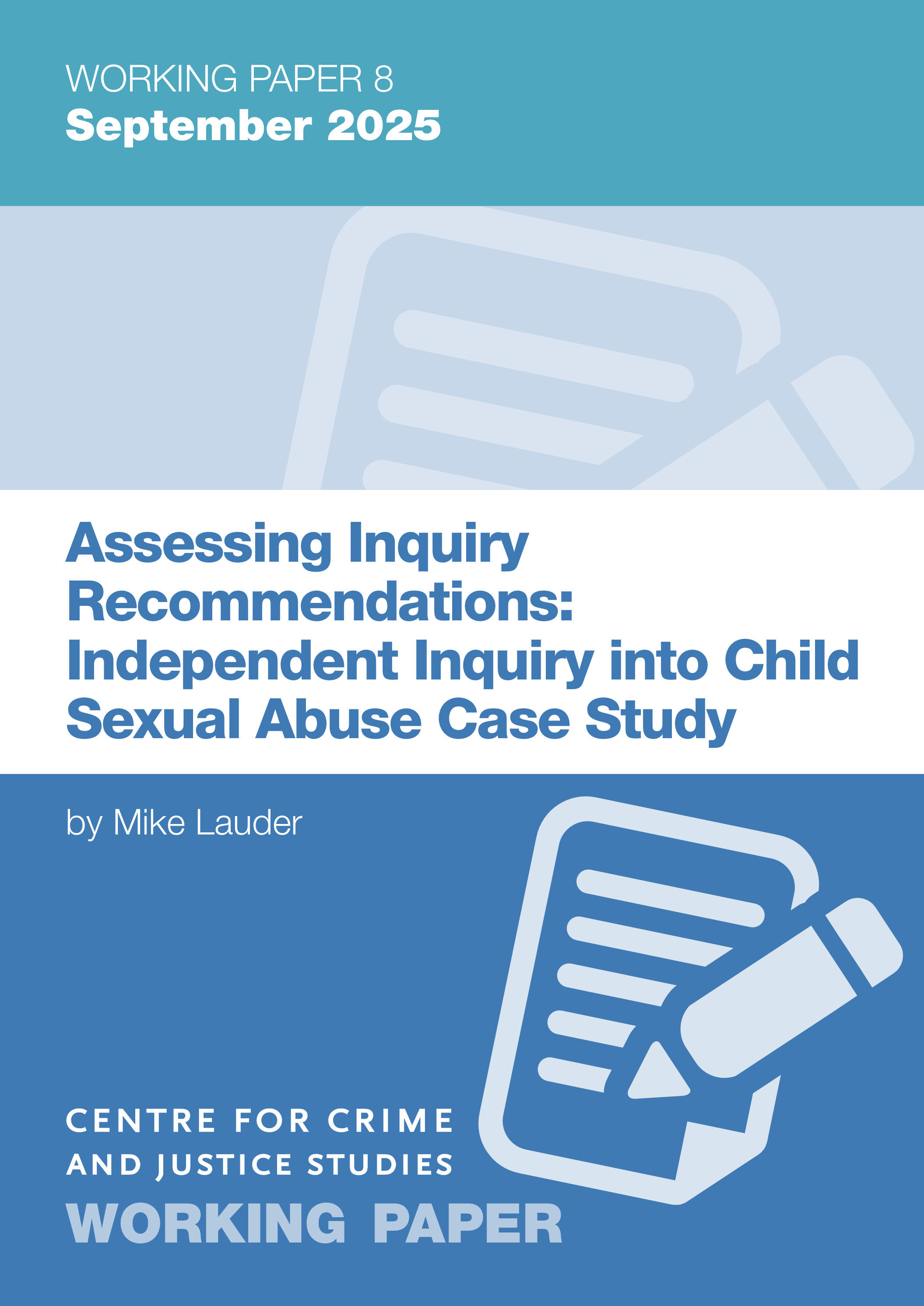In this Working Paper, Dr Mike Lauder proposes a method for assessing inquiry recommendations.
Mike Lauder argues that, if the purpose of inquiries is to learn and prevent, then all recommendations should be scrutinised before they are endorsed and implemented – much in the same way that academic work is peer reviewed. In this paper, he proposes a method that could be used to assess inquiry recommendations and trials its application using the final report of the Independent Inquiry into Child Sexual Abuse (IICSA) as a case study.
Lauder notes that how one interprets any recommendation is shaped by whether one follows a Perfect World Paradigm or Normal Chaos approach. The former view assumes that a system is perfect except for a few flaws and the latter assumes that systems have complex dynamics that will go wrong if not carefully managed. These concepts are explained in further detail in Lauder’s previous working paper Imprisonment for Public Protection - A failure of the Perfect World Paradigm.
Taking the view that any minor change could have major unintended negative consequences, Lauder reasons that any recommended change needs to be mapped all the way through to the desired outcome to make sure that it does not create those negative consequences.
The method proposed in this paper first looks at recommendations in terms of objectives and how they are reached. Lauder presents a rating system based on the clarity of the action required by a recommendation and its links to measurable outputs and outcomes. He demonstrates the method by applying these ratings to the 20 main recommendations in the final report of the IICSA.
The second aim of the method is to determine the probability that the recommendations would produce a ‘desired new end state’ (DNES). In this paper, the DNES is defined not by the original parameters of the inquiry but rather the concerns of those calling to renew it.
Lauder concludes that, while his proposed framework needs further development and the protocols for its use need to be refined, the issues it raises warrant further consideration.
The Centre for Crime and Justice Studies’ working paper series publishes research and analysis of an exploratory nature. Working papers are not formally peer-reviewed, but are intended to stimulate reflection and discussion on current and relevant areas.
